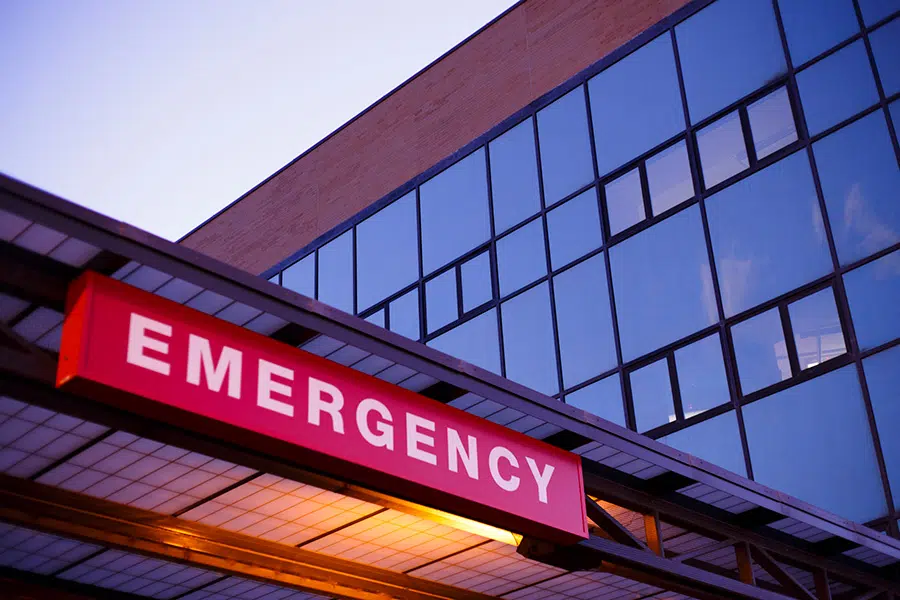The type of health care provided in emergency rooms is substantially different than that provided in other environments, such as inpatient or primary care facilities. The doctors, nurses and staff in emergency departments must handle many different, often difficult, situations simultaneously and quickly make decisions about care for multiple patients who are in potentially critical condition. Often, their efforts are hampered by interruptions, lack of information about their patients and unreliable information.
Under these challenging conditions, they still have a duty to provide adequate medical care; however, when patients are in a true emergency situation, the standard of care is recklessness, not negligence. That is, pursuant to the Florida Good Samaritan Act, hospitals and emergency room personnel cannot be held liable for damages that occur due to medical care or treatment administered when patients require immediate, emergency services prior to being stabilized unless the care, treatment or lack of care showed a “reckless disregard” for the effects on the life or health of the patient.
In most other emergency room situations, however, hospitals and ER staff can be held liable for medical malpractice if the care they provide is below the standard of care accepted by other medical professionals in the same field of medicine. For example, if a patient in the emergency room has the signs and symptoms of a heart attack, stroke or pulmonary embolism but is not treated as emergent and is discharged or is otherwise not treated properly and suffers the consequences, the hospital and emergency department staff involved could be deemed negligent and potentially held liable for medical malpractice. Similarly, if a patient with an epidural abscess compressing the spinal cord is not admitted and operated on to prevent paralysis or a septic patient is not treated in time to prevent infection from rapidly intensifying and leading to septic shock and multi-organ failure, the hospital and emergency room personnel involved could be considered negligent and held liable for damages caused by medical malpractice.
The Problem of Diagnostic Errors in Florida Emergency Rooms
According to a report on Improving Diagnosis in Health Care by the U.S. National Academies of Sciences, Engineering, and Medicine, diagnostic errors (i.e., misdiagnosis, delayed diagnosis and failure to diagnose) are a major public health problem. When those errors occur in emergency rooms, they are often particularly egregious, leading to serious, life-threatening infections, permanent disabilities, damage to vital organs and death. Some of the most common emergency room diagnostic errors that can cause irreparable harm involve:
- Infections: appendicitis, meningitis, spinal abscess, pneumonia, encephalitis, endocarditis, sepsis.
- Vascular events: myocardial infarction, stroke, aortic aneurysm, arterial thromboembolism, venous thromboembolism.
- Serious bone fractures.
- Pediatric conditions: congenital heart disease, arrhythmias, sudden cardiac death, necrotizing enterocolitis.
- Conditions related to pregnancy: preeclampsia, eclampsia, ectopic pregnancy.
Unfortunately, diagnostic errors related to these and other serious medical conditions occur frequently in emergency rooms. As MedPro Group, a liability insurance company for physicians, reports, 68 percent of all emergency room malpractice claims are related to diagnostic errors, and these claims comprise 76 percent of all the money paid by liability insurance companies for medical malpractice defense and indemnity. In comparison, only 24 percent of all medical malpractice claims are related to diagnostic errors and only 33 percent of the money paid to settle malpractice claims is for diagnostic errors.
What Causes Errors in Florida Emergency Rooms?
Many Florida emergency rooms are understaffed, with overworked, fatigued physicians and other health care providers making critical diagnostic errors, as well as errors in triage, assessment, monitoring and treatment. According to a MedPro Group report on emergency room medical malpractice claims data, factors that contribute to these critical medical errors in emergency rooms are, “multi-layered issues or failures in the process of care.”
Among the numerous, interconnected factors that contribute to medical malpractice in emergency rooms are:
- Substandard clinical judgment – If patients are not triaged properly or assessed or monitored appropriately, they may not receive the immediate attention they need or the tests necessary for correctly diagnosing and treating their condition.
- Communication failures – When critical information about patients is not communicated among emergency room health care providers, serious mistakes and failures in patient care can occur, including premature discharge, inappropriate treatment and medication errors.
- Lapses in the process of care – During shift changes or on weekends or holidays, changes or gaps in patient care processes can occur, putting patients at risk for injury from diagnostic errors, medication errors and improper management of treatment.
- Breakdown in the process for ordering, tracking and reporting test results – Serious, life-threatening conditions can be overlooked if appropriate diagnostic tests are not administered, if test result are misinterpreted or if the significance of a finding is misjudged.
- Inadequate documentation – Inadequate documentation of diagnoses, treatments and recommended follow-up care can lead to serious patient injuries after discharge.
Whatever the cause, the fact remains that medical errors in the emergency room can have deleterious consequences for patients who seek emergency care, especially when acute myocardial infarctions, strokes, appendicitis, spinal epidural abscesses/spinal infections, sepsis, ruptured spleen or other organ injuries, intestinal perforations, compound fractures, brain injuries, nerve injuries, spinal injuries and internal bleeding are not diagnosed or are misdiagnosed.
What Can I Do If I Was Harmed by Emergency Room Malpractice in Florida?
If you or a family member were harmed due to a diagnostic error, other type of error or negligent care in a Florida emergency room, you may be able to hold the responsible parties liable with a medical malpractice claim. You may be entitled to substantial compensation for your pain, suffering, mental distress, lost income, medical expenses and other damages recoverable under Florida law, but you need to talk with an experienced Florida medical malpractice attorney to understand how the process works and what kind of compensation may be available to you.
Florida emergency room medical malpractice lawsuits are usually very complicated. Demonstrating that a doctor, nurse or other emergency room health care provider failed to provide the accepted professional standard of care and that the failure seriously injured a patient requires a thorough investigation and understanding of the facts, top flight expert testimony, effective use of the civil discovery process and the expertise of a medical negligence trial lawyer.
The Miami medical malpractice attorneys of Boyers Law Group have the experience, skill and resources needed to protect your rights and provide powerful advocacy for your emergency room malpractice claim.

